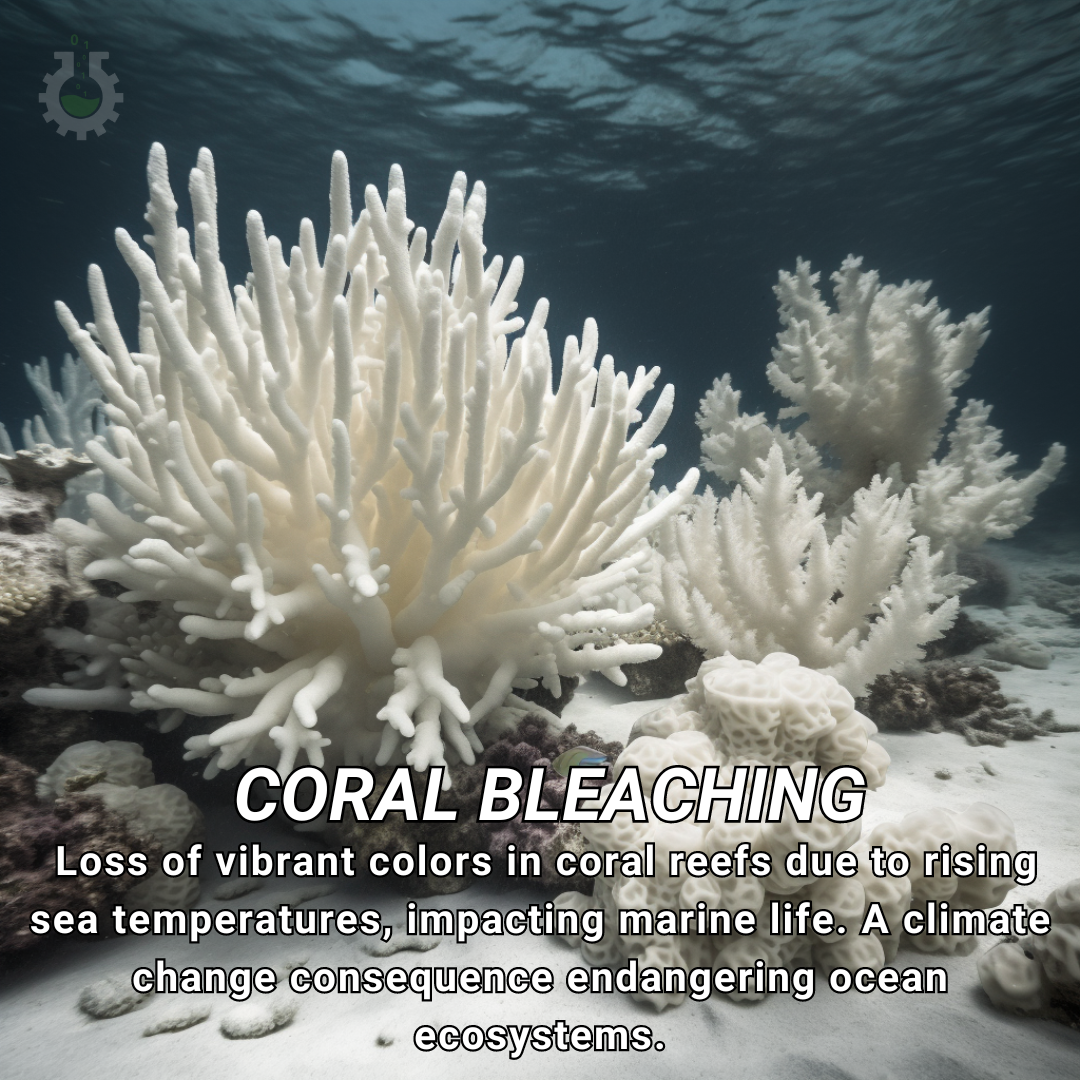February 8, 2024
Climate Change Poster Collection of the Day – Coral Bleaching
Book a Demo
Today’s Climate Change Poster Collection highlights Coral bleaching is a phenomenon that doesn’t often make headlines, but it is one that has profound implications for our oceans and our planet as a whole. It is marked by the expulsion of zooxanthellae, a type of algae that gives corals their vibrant colors. More often than not, this expulsion is triggered by environmental changes.
The primary driver behind coral bleaching is climate change. However, numerous other factors contribute to this concerning phenomenon, including water temperature fluctuations, pollution, and excessive sunlight. Each of these elements can create an inhospitable environment for corals, causing them to expel the zooxanthellae they rely on for survival.
Coral bleaching is a major concern for scientists and environmentalists. This is largely because it often leads to the death of the coral, making the recovery of affected reefs a rare and difficult occurrence. The death of coral reefs due to bleaching can lead to the deterioration of entire marine ecosystems that both humans and wildlife heavily rely on.
Coral reefs are some of the planet’s most biodiverse ecosystems. They offer shelter and protection to thousands of marine species, acting as underwater cities teeming with life. The loss of these reefs due to bleaching is nothing short of devastating for marine wildlife.
However, the impact of coral bleaching is not limited to marine life. It also has significant effects on humans, threatening livelihoods, food security, safety, and exacerbating other environmental crises like overfishing. The loss of coral reefs due to bleaching can intensify the impact of waves and storm surges, as reefs act as natural barriers. Additionally, reef-based tourism, a significant source of income for many coastal communities, can also be severely affected.
Fortunately, there are actions we can take to prevent coral bleaching. These include reducing stormwater and fertilizer runoff to lessen the impact of pollution on coral reefs. We can also avoid harmful chemicals that can upset the delicate balance of marine ecosystems. Most importantly, addressing climate change by reducing global emissions is crucial. By taking these steps, we can help to preserve our planet’s coral reefs and the incredible biodiversity they support.
The fight against coral bleaching is not just about preserving the beauty of our oceans. It is about ensuring the survival of countless marine species and protecting the livelihoods of millions of people. Therefore, it is a fight that we must all take part in.
Discover an inspiring collection of climate change poster.



